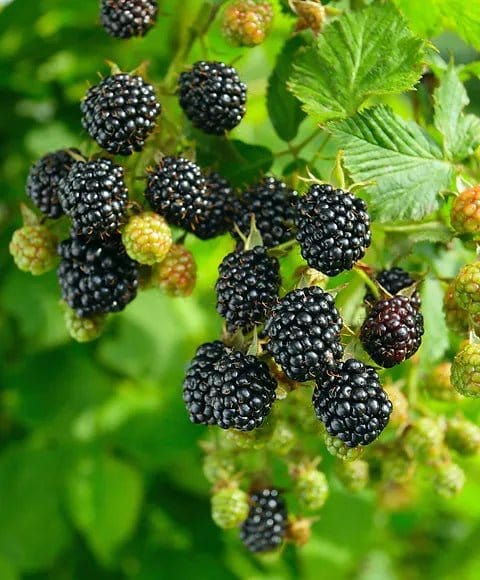Wild Blackberry
Couldn't load pickup availability
We do not ship this plant to the following states:
RI. HI. MA.FL. TX. WARI. HI. MA.FL. TX. WA
Rubus moluccanus - Wild Blackberry
Wild Blackberry is a fruit native to North America, Europe, and Asia. It often grows on thorny bushes in fields, forests, and roadsides. These small, sweet-tasting fruits are popular with birds, animals, and humans.
Wild Blackberry's Characteristics
The plant is a member of the rose family and produces fruit typically 1-2 inches long. The berries start green and gradually turn red, then dark purple or black when fully ripe. They are known for their sweet, tart flavor and are often used in jams, jellies, pies, and other desserts.
Uses Of The Wild Plant
One of the unique characteristics of this plant is that they have an abridged growing season, typically from late June through mid-August. During this time, the bushes are covered in fruit, which can be harvested by hand. However, the complex nature of the bushes makes picking the fruit somewhat challenging.
Benefits
These Berries are also known for their health benefits
They have been shown to help digestion and inflammation and support healthy skin. Blackberries are low in calories, making them an excellent choice for those watching their weight. Another benefit of wild blackberries is that they are easy to grow. They can be propagated by cutting off bushes or planting seeds. They thrive in various soils and climates, making them a great addition to any backyard garden.
Cultural Significance
The Wild blackberry has culinary and health benefits, but it also has cultural significance. Traditional medicine has been used for centuries to treat various ailments, including sore throats, diarrhea, and skin conditions. Some indigenous cultures have also used them in rituals and ceremonies. Wild plants are a versatile and nutritious fruit with many benefits. Whether eaten fresh, cooked, or preserved, they are a delicious and healthy addition to any diet.
This Is How Your Plants Will Look upon Delivery
Shipping date depends on the date displayed and chosen when you order from the product's page.
We do not offer warranties on products after 5 days past receiving your plants.





